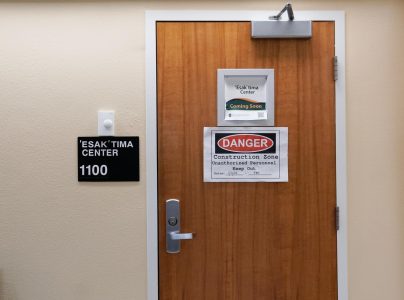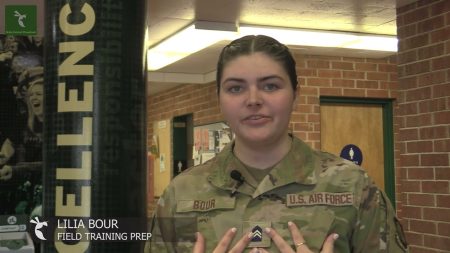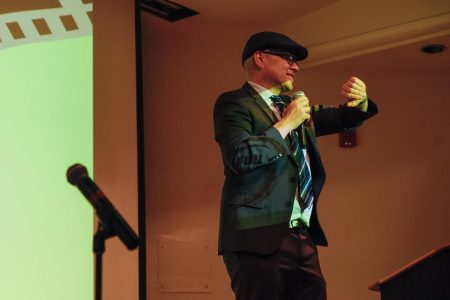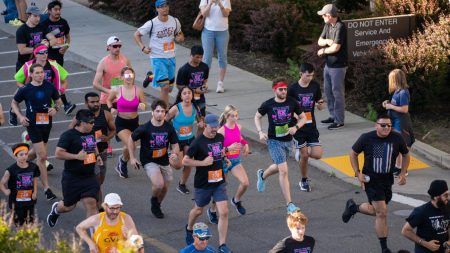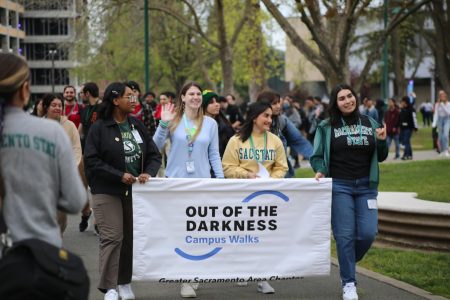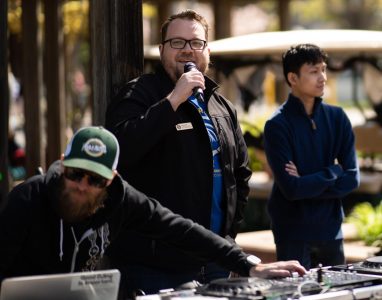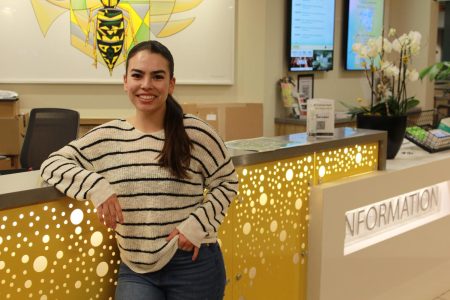Sac State offers new yoga class for trauma survivors
May 7, 2013
Stress relief, mentoring and coping were found within the Yoga for Trauma Survivors event held at the Well on Tuesday. This event was promoted as a safe haven for anyone who has survived any type of trauma including, but not limited to, sexual assault and domestic violence.
Traditionally, yoga has an emphasis on relaxation, breathing, body awareness and accelerated healing.
According to “The Journal of Alternative and Complementary Medicine” written by Alyson Ross and Sue Thomas, “Yoga is an ancient discipline designed to bring balance and health to the physical, mental, emotional, and spiritual dimensions of the individual.”
In 2006, the Boston Area Rape Crisis Center began a yoga program implementing the core ideals of yoga with a healing module for people who have been affected by rape and other traumatic incidents. The program adopted three main missions for their participants: reconnecting with and caring for the body, which has literally been the scene of the crime; teaching yoga and other body-based skills for healing; and creating a safe space that decreases stigma and fosters empowerment.
Jessica Heskin works in the Violence and Sexual Assault Support Services at Sacramento State and has seen people deal with traumatic situations for more than 15 years. She said she wanted to give them the opportunity to heal through this yoga practice.
“It is so important for a person who has gone through a traumatic incident to feel like they can own back their body,” Heskin said. “When I teach the different poses it is very different from the typical poses because we want to teach the participants about self-awareness and confidence again.”
The trauma-sensitive yoga differs in three different ways: invitational language, no physical assists and personal exploration of the postures.
One of the four participants who came to the event was used to the more modern way of doing yoga.
“One of the females today said to me, ‘So you are going to help with my postures, right?’ I had to tell her no and that she can explore whatever movement of her body she wanted to,” Heskin said.
At UC Irvine, Zabie Khorakiwala is the instructor of their yoga for trauma survivors program. She was inspired by her own experiences of trauma.
In an interview with Huffington Post, Khorakiwala said, “At times I felt overwhelmed and suffocated in my own body because my sense of safety was challenged as a result of the assault. Yoga helped me cope; it allowed everything in life become more manageable.”
Heskin said she would like to add not only yoga as a form of healing, but journaling as well. She encouraged all the participants to take a notebook and write sentences that start with, “What I want is…” “What I do not want, and I am allowing is…” and other like-minded statements.
The counseling department wants to expand this into an eight-week program in the fall semester. Heskin said she is in need of support from the students to show that there is a need for the program, and encourages all students interested to ask questions and communicate with the counseling offices on campus.

































































































































